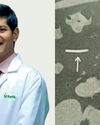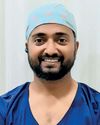
Various microorganisms, including bacteria, viruses, fungi, and parasites, typically cause these infections. Hospital-acquired infections can affect both patients and healthcare workers.
One of the most common wards where HAIs occur in a hospital setting is the Intensive Care Unit (ICU), where doctors treat many critical diseases and conditions. HAIs infect about one in every 25 hospital patients. Over 1.4 million people around the globe suffer from infectious complications acquired in hospitals, which leads to a significant number of fatalities and hospital costs.
Today, with medical communities becoming complex as they are equipped to treat major diseases and antibiotic resistance increasing in patients, cases of HAI will continue to grow; however, the good news is that HAIs can be prevented with the right amount of awareness and prevention techniques.
COMMON HAI TYPES
The common conditions for an infection to be classified as HAI must fall into:
• The infection should occur up to 48 hours after hospital admission .
• The infection must have happened up to three days after discharge or 30 days after an operation
• The infection must have appeared in a healthcare facility when the patient was admitted for reasons other than the HAI .
Esta historia es de la edición February 2024 de Healthcare Radius.
Comience su prueba gratuita de Magzter GOLD de 7 días para acceder a miles de historias premium seleccionadas y a más de 9,000 revistas y periódicos.
Ya eres suscriptor ? Conectar
Esta historia es de la edición February 2024 de Healthcare Radius.
Comience su prueba gratuita de Magzter GOLD de 7 días para acceder a miles de historias premium seleccionadas y a más de 9,000 revistas y periódicos.
Ya eres suscriptor? Conectar

SpOvum launches Al-powered platform to boost patient support in assisted reproductive technology
The platform offers personalized information based on individual ART-related concerns, drawing from reliable, indexed medical guides to provide fact-based, tailored answers.

Hearzap launches Al-powered Philips HearLink 50 miniRITE
The company is projected to expand across 250 stores by 2026 and envisions accessible and affordable hearing care across the country.

Red.Health launches Al-driven medical emergency platform
In medical emergencies, every second matters but the current emergency medical systems face many challenges

OmniActive acquires ENovate Biolife
The company aims to double its top line, targeting Rs 2,000 crores within the next 5 to 6 years from the present Rs 1,000 crores.

5-year-old fish bone removed from 61-year-old's abdomen
The patient had previously undergone an endoscopic procedure five years ago at another hospital to remove a fishbone, but the current one had likely been missed at that time.

Large brain aneurysm treated using advanced stenting method
Aneurysm is a bulge or ballooning in a blood vessel of the brain. It’s often described as looking like a berry hanging on a stem.

37-year-old pregnant woman treated for aggressive breast cancer
Given the complexity of her condition, the team worked closely to develop a treatment plan that would balance the needs of both mother and babies.

45-year-old treated with robotic-assisted hernia surgery
This surgery marks a significant milestone for Park Hospital, which has successfully completed 50 robotic-assisted procedures.

Healthium Medtech, Healthcare Sector Skill Council (HSSC) sign MoU to boost skill development in Indian healthcare
Healthium and HSSC will collaborate to deliver training programs aimed at skilling, reskilling and upskilling healthcare workers, enabling them to address evolving challenges in the field.

Advanced ambulance fleet launched for Maharashtra's emergency services
The announcement comes amid ongoing bilateral meetings between Prime Minister Narendra Modi and Prime Minister Pedro Sanchéz Perez Castejon of Spain.